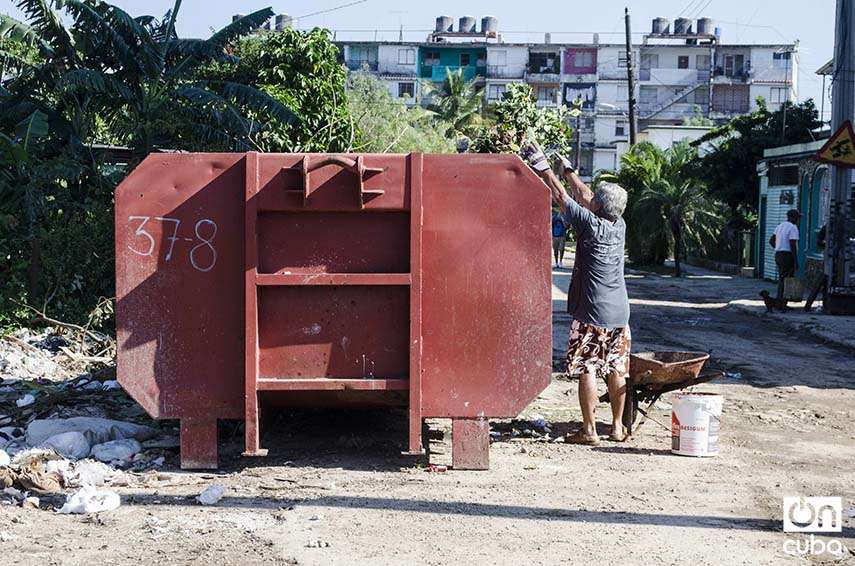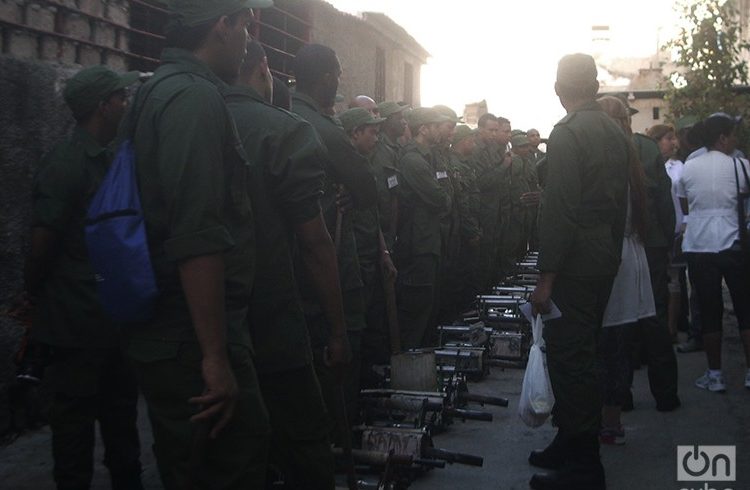More than 9,000 troops have been deployed in Cuba to conduct a national health campaign to eliminate Aedes Aegyptis mosquitoes, the species that spreads the Zika virus, and the dengue and Chikungunya viruses as well.
Although no cases have been reported in the country so far, for six days now this force has been walking the main streets of the cities, fumigating house by house.
In pairs, the young soldiers walk around armed with handheld fumigation machines. They are teamed up with medical students, who check the people for symptoms of any of the associated diseases.
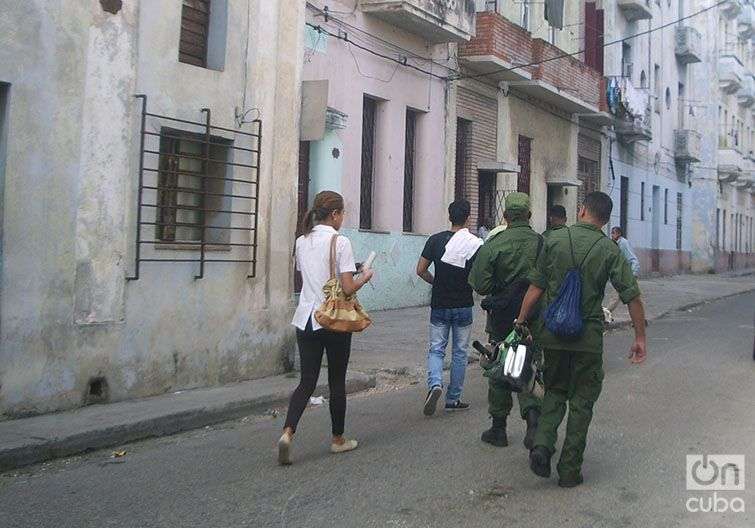
It is not a military manoeuvre technically speaking, but rather an operation to support the healthcare system strategy that is trying to keep the disease out of the country.
President Raul Castro summoned the people to give their support to these efforts in a public address: “It’s necessary for every single Cuban to understand this fight as a personal matter, as a problem that concerns them all, primarily because it’s their duty to their families.”
The high risk of the virus reaching the island nation has put in motion the healthcare campaign, following the state of emergency declared by the World Health Organization (WHO).
Cuba’s deteriorated hygiene and environmental conditions, and a low risk perception could be the perfect formula for an epidemic.
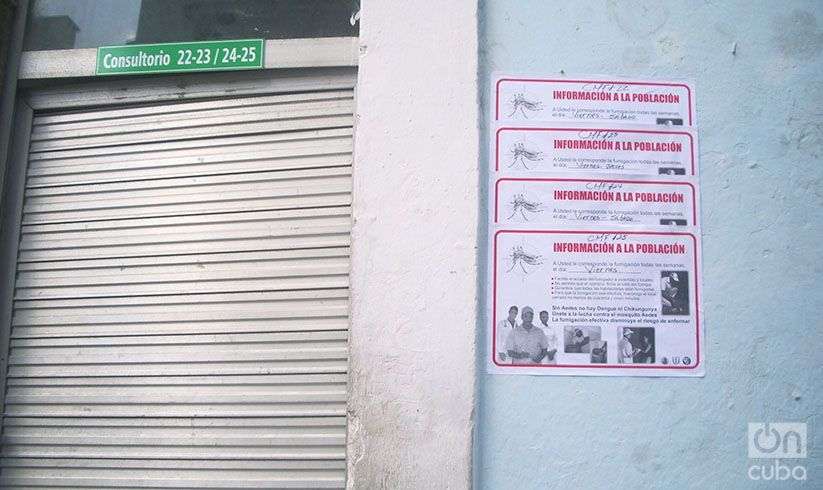
“Each team has to inspect 100 households per day,” said Osniel, one of the reservists assigned to the area of Cayo Hueso in Old Havana. “We have two daily debriefs, one at noon, and another one at 6:00 p.m. where we have to report the houses to which we had -or didn’t have- access.”
“We only fumigate,” he added, “the medical students are the ones who take people’s names down, and take their temperature to detect cases of fever.”
“I work as a security guard, and I live near this area, like almost everyone who has been mobilized,” added the young man in an olive green uniform, “enhanced” with fashion sunglasses.
People have been encouraged to give their support to the campaign, and special permissions have been given to state-run company workers to get late to their workplaces. or don’t go to work, so that they can guarantee that their houses are fumigated.
But more binding measures have been taken: Resolution 23 of the Attorney General’s Office has put in place procedures to hold liable those who refuse to cooperate. 200 police officers will be deployed to fine uncooperative people.
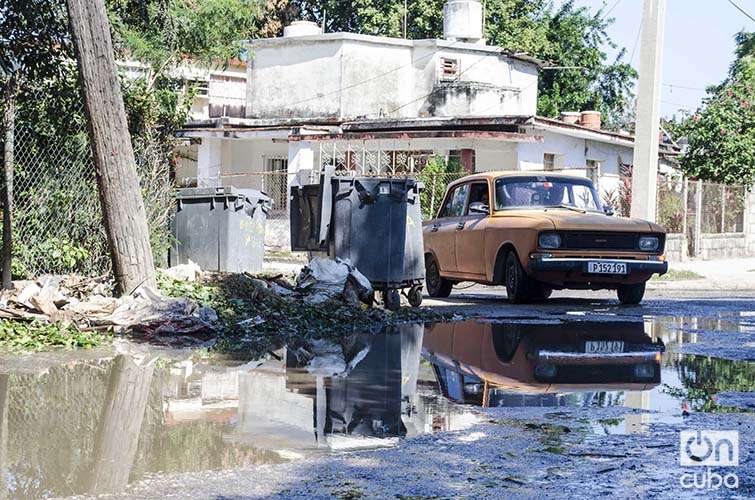
Daisy, the organizer of a Committee for the Defense of the Revolution (CDR) in the area of Espada and Jovellar streets, said she made sure that all her neighbours opened their doors.
“I called them myself one by one, or knocked on their doors,” she said. “If they refuse to fumigate they’ll have to pay a fine for 1,500 pesos” (60 dollars).
The magnitude of the campaign launched nationally is also aimed at stopping the spread of other diseases, which have reached a veritable level of epidemics.
In Centro Habana, for instance, some constituencies that through 2015 had only reported 20 cases of dengue fever per month, saw those numbers go as high as 140 people infected in December 2015 and January 2016.
“In Cuba there’s a low risk perception, not because people don’t care, but because the information published about these epidemics is virtually inexistent,” the deputy director of Hygiene and Epidemiology at a policlinic in Havana told OnCuba on condition of anonymity.
“There’s cholera, and we’ve been warned about the risks of yellow fever coming from Africa, but there’s no mention of that in the media. Information about epidemics is treated as a political issue,” he added.
For a country lacking resources like Cuba, it may be easier, in the short term, to mobilize the Army than to put an end to the accumulation of garbage on street corners, or to fix the leaks in water distribution networks.
“People stopped caring because we’ve been in the same situation for years, and nothing seems to change,” said Manolo Iturralde, a man who lives on a fourth floor in Cayo Hueso. He refuses to fumigate his house because the state-run store and office on the ground and first floors are not being fumigated.
That will be another tough battle for the anti-mosquito infantry.
